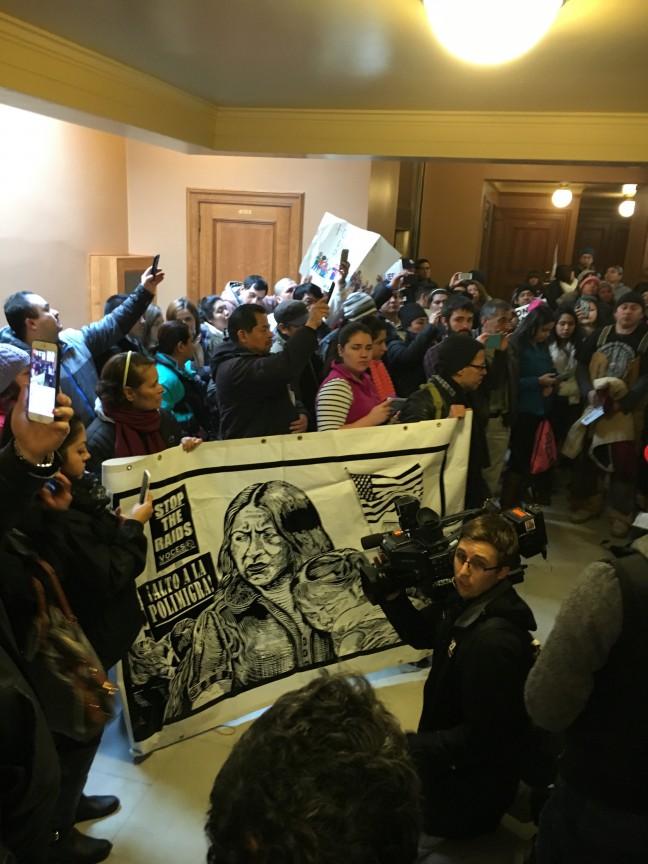Legislation allowing law enforcement to inquire about the immigration status of criminals passed the Assembly Committee on Urban and Local Affairs Tuesday, but was met with outcry from immigration activists.
While the bill would prohibit local law enforcement from reporting undocumented workers to immigration officials and from inquiring about people’s citizenship, it would allow law enforcement to ask about citizenship only for those that have committed a crime.
Rep. David Steffen, R-Green Bay, supported the bill because it does not put reporters of crime at risk of deportation. Steffen said undocumented people could be deterred from reporting crimes in their community out of fear of being asked whether or not they are legal citizens. This bill, he said, protects them from that question.
“There was a lot of concern from people that testified about a situation in which they were concerned about how they would be engaging with their law enforcement,” Steffen said. “With the passage of amendment two, we have protected people from that situation.”
But Voces De La Frontera, an immigration rights group, expressed fear the bill would allow police to “act like immigration agents,” according to a flyer passed out at the meeting.
Under the bill, nonviolent crimes and other low-level misdemeanors could be grounds for law enforcement to ask someone whether or not they are a legal citizen, Rep. Eric Genrich, D-Green Bay, said.
Genrich said immigrants should only be deported if they are involved in terrorist or gang activity or have committed felonies. He said immigrants who commit minor crimes should not be deported.
Rep. Leon Young, D-Milwaukee, said the bill is anti-immigrant and goes too far.
“This is a horrible bill. It, to me, is bringing Donald Trump politics into Wisconsin,” Young said. “It’s extreme, it’s anti-immigration, anti-local government. It just sends a message that people of Hispanic descent and other heritage are not welcome here.”
Karma Chávez, University of Wisconsin communication arts professor, said immigrants are an important part of society and shouldn’t be marginalized.
“Immigrants contribute greatly and receive very little when they come to the U.S.,” Chávez said.
Following the committee hearing, protesters gathered outside, holding signs and banners promoting immigration rights. They advertised “Day Without Latinos,” a “mass mobilization” to oppose the bill scheduled for Feb. 18 at the Capitol.
Only Genrich and Young voted against the bill. It will next head to the Assembly.














